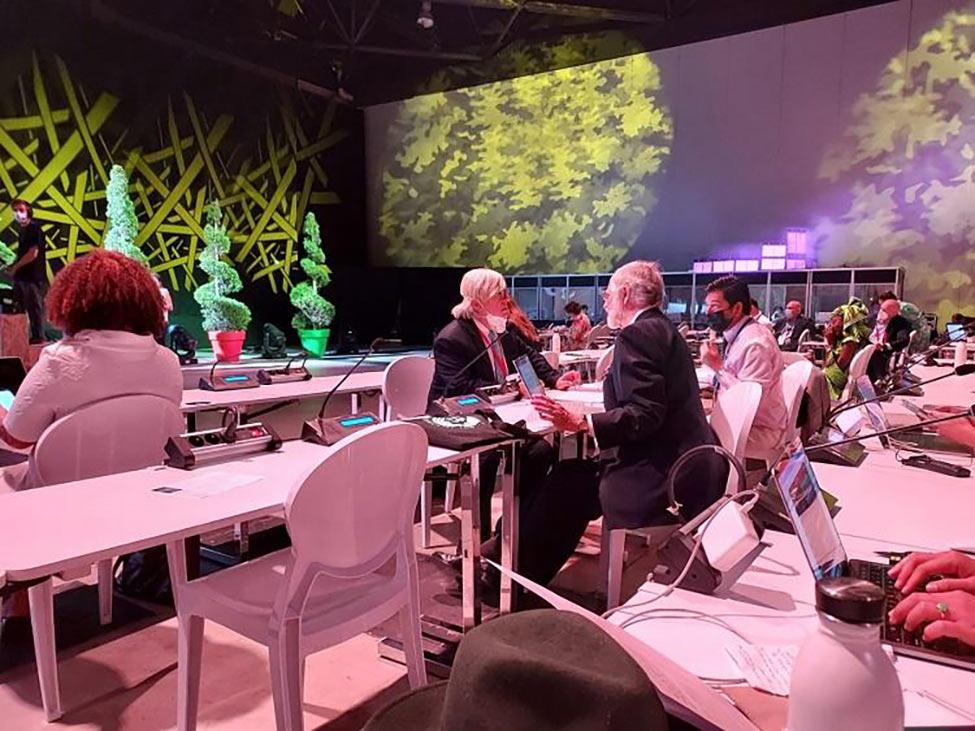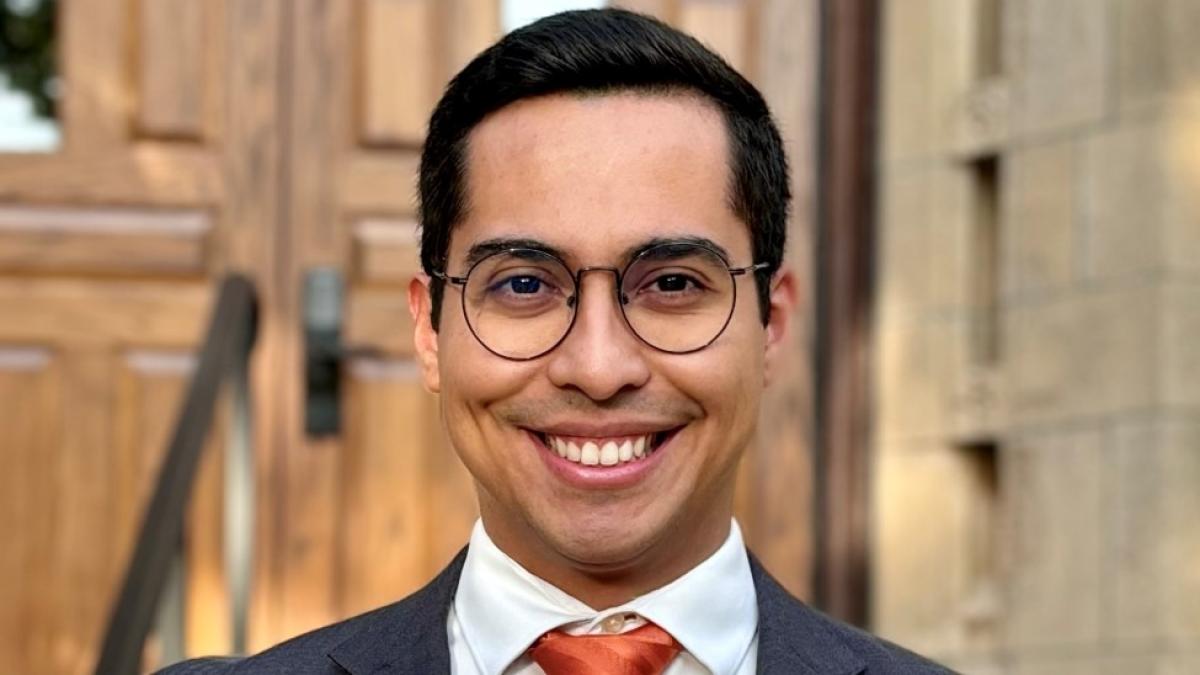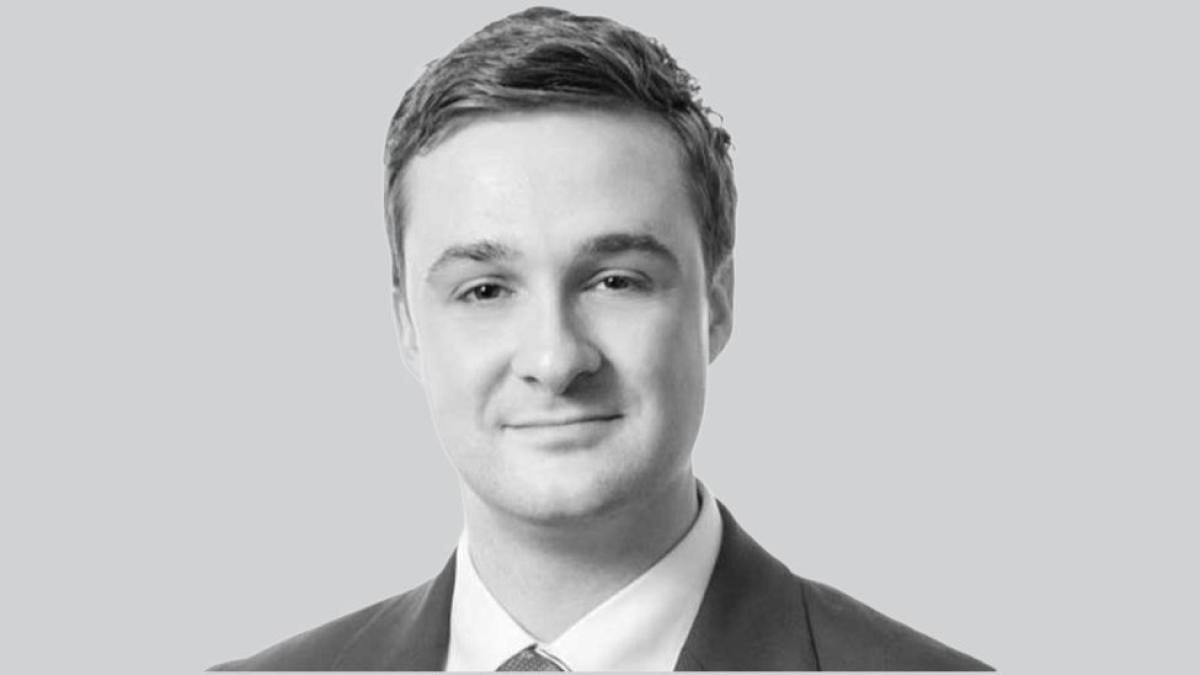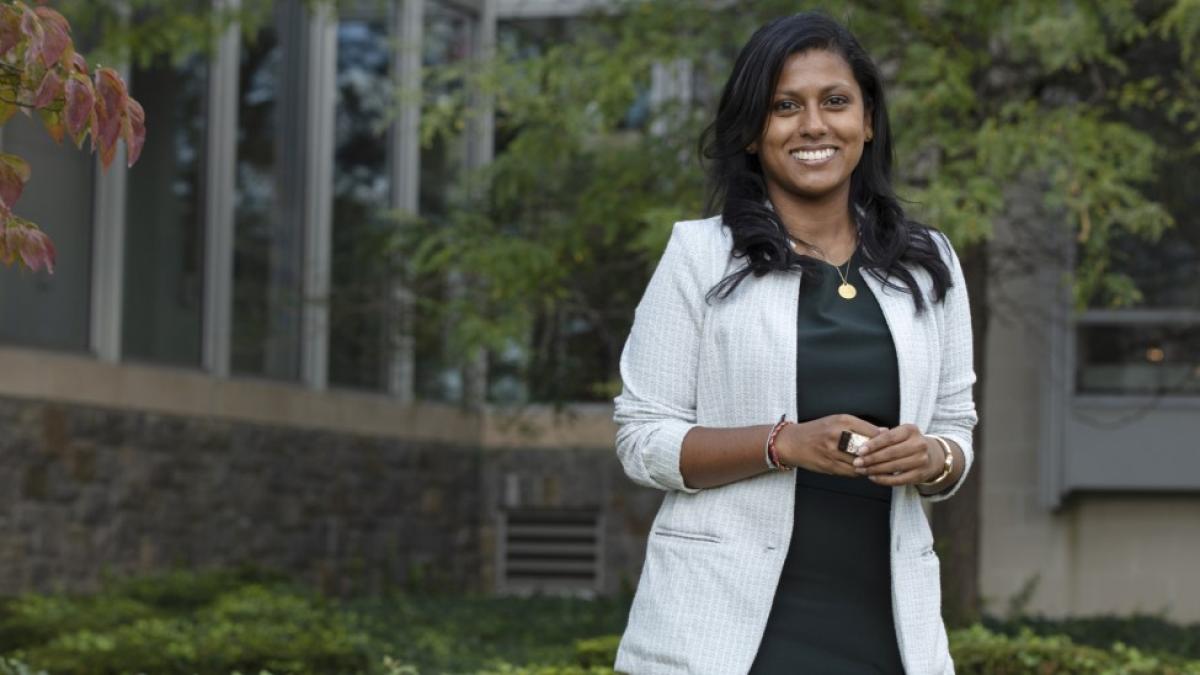
Haub Law’s Global Center for Environmental Legal Studies Plays Integral Role at IUCN World Conservation Congress

The Global Center for Environmental Legal Studies (GCELS) at the Elisabeth Haub School of Law at Pace University successfully submitted and advocated for the adoption of groundbreaking motions to strengthen human rights and environmental protections at the International Union for the Conservation of Nature (IUCN) World Conservation Congress, which took place in Marseille, France from September 3 to September 11, 2021. Haub Law is one of only two law schools in the United States that is a voting member of the IUCN. Decisions made at the conference have wide-reaching implications for environmental law and policy around the globe.
“GCELS’ work with IUCN is guided by the paramount need to strengthen environmental rule of law and ensure human rights and environmental justice for communities most affected by climate change and environmental degradation,” said Haub Distinguished Professor of International Law and GCELS Co-Director, Smita Narula. “Our environmental law program puts what we teach into practice, both locally and globally, to drive real, impactful change.”
A delegation from Haub Law School, including students, alumni, faculty, and staff, joined some 6,000 other world leaders and decision-makers both virtually and in Marseille to influence the global conservation agenda and guide IUCN’s workplan for the next four years. GCELS’ motions ensured that the world’s largest and most diverse environmental network called for an end to fossil fuel subsidies, promoted urgent measures to help prevent future zoonotic diseases, and upheld the right to food sovereignty under the landmark U.N. Declaration on the Rights of Peasants and Other People Working in Rural Areas. GCELS also helped usher in a historic renunciation by IUCN of the colonial Doctrine of Discovery which for centuries has undermined Indigenous Peoples’ sovereignty and rights. View details of these GCELS’ motions and of the work of student delegates in the Haub Law team.
“The recent IPCC science assessment that climate change is already producing irreversible damage and calling for urgent action to phase out fossil fuels, demands immediate actions. Our Climate Motion calls for exactly that,” said Dean Emeritus and GCELS Co-Director Professor Richard Ottinger.
Commenting on the significance of the peasants’ rights motion, Geneviève Savigny of the international peasants’ movement La Via Campesina said: “The vote on this IUCN motion shows the growing recognition of the positive role of peasants and Indigenous communities in the conservation of biodiversity. Public policies must promote food sovereignty and peasant agroecology that works with nature, not against it.”
Student members of the Haub Law delegation played a crucial role in drafting, submitting, and negotiating for the adoption of these and other motions. Since Spring 2019, and in the lead up to the Congress, dozens of Haub Law students and alumni have worked closely with GCELS’ Co-Directors and LLM Fellows and with Professor Nicholas Robinson and Professor Victor Tafur to advance environmental justice and strengthen environmental rule of law globally through the IUCN.
Student Haub Scholar Madison Shaff, who worked on the zoonosis motion, said “Our goal was to strengthen the health of the environment, and in turn, to prevent future pandemics. It has been a wonderful experience to be a part of something with such monumental impacts.” Student Haub Scholar Christopher Sudol, who worked on the motion renouncing the Doctrine of Discovery, added “I am honored to have helped draft and negotiate a motion that the Chair of the World Commission on Environmental Law, Justice Antonio Herman Benjamin, recognized as ‘one of the most important motions approved by IUCN, ever.’”
Professor Achinthi Vithanage, Associate Director for Environmental Law Programs, expressed her gratitude to the students and commented, “I am thrilled by the outstanding contributions made by our current and former students to the development of international environmental law and policy, especially their tenacity in navigating the new normal of virtual negotiations.”
University Professor on the Environment and Gilbert and Sarah Kerlin Distinguished Professor of Environmental Law Emeritus, Nicholas A. Robinson, notes, “[t]he Elisabeth Haub School of Law at Pace University is a thought-leader and change-maker in the global transformation to a sustainable world. At the IUCN WCC, equity and justice, for people and for nature, is advanced. It is time for action and I am proud that Haub Law continues to have such active participation in this endeavor.”
This year, leading up to the Congress, a two-day symposium was held entitled Peace with Nature: Laws for Ecological Resilience. Many Haub Law students, alumni, and faculty were featured panelists.


